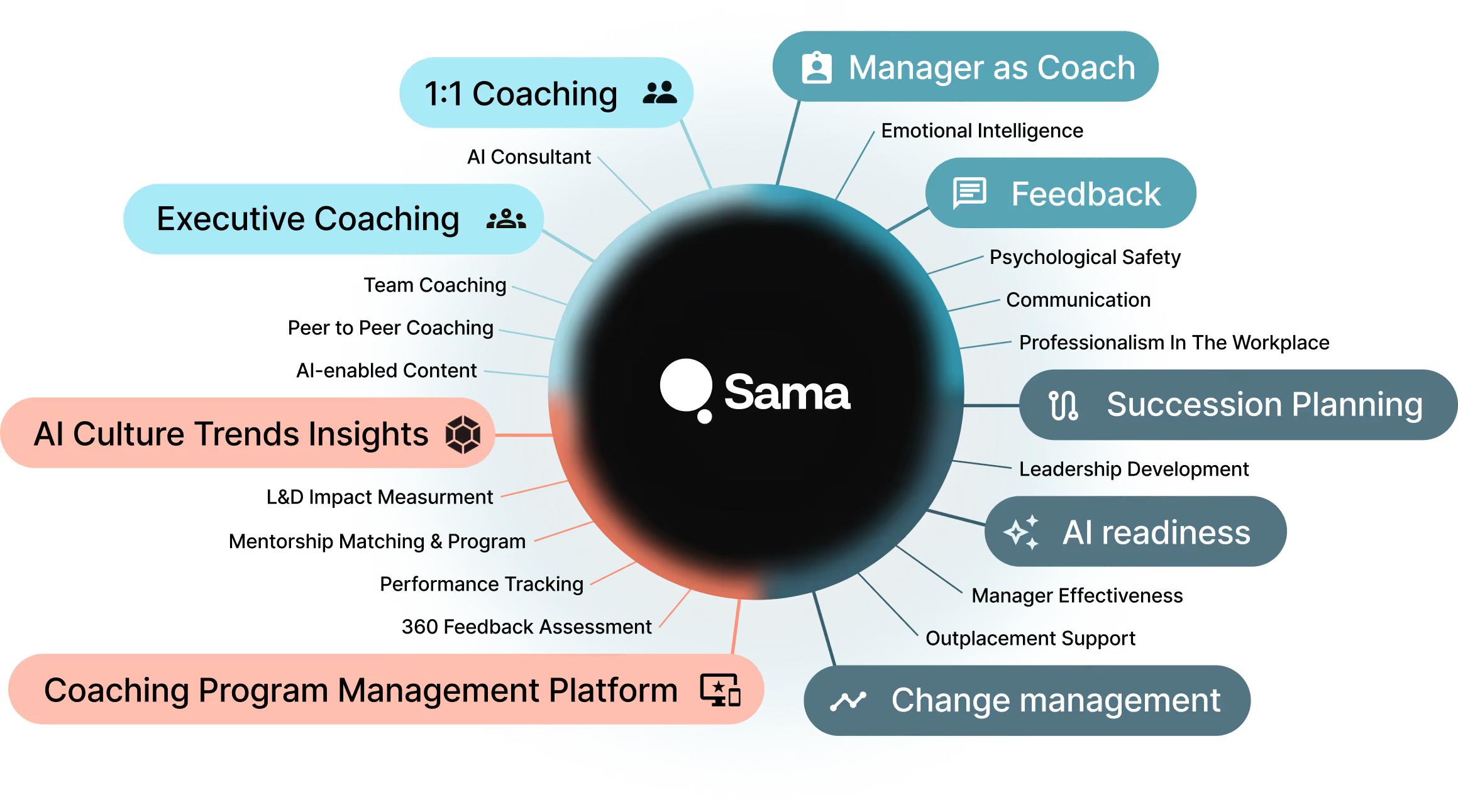

















































Executive coaching
Build Talent Development that Drives Performance in a Changing World
Sama is redefining performance by combining coaching expertise with data intelligence to help people and organizations thrive in constant change.


Your Strategic Partner for End to End Talent Development and Performance
Sama brings together world class coaches and advanced organizational intelligence to create a living system for performance and adaptability.




The Sama Performance Ecosystem
Sama brings together world class coaches and advanced organizational intelligence to create a living system for performance and adaptability.
Every experience is guided by data, refined by AI, and powered by human connection with confidentiality at its foundation. Because the organizations that keep learning are the ones that keep winning.
Accelerate performance today while building the talent ecosystem for tomorrow
Develop leaders who think clearly, act decisively, and adapt with purpose. Sama equips them with the insight to align people, strategy, and performance in real time.
Learn how to integrate AI into the flow of work and enable people to continuously learn and adapt while ensuring safety and compliance, aligned with your company’s long term objectives.
Through coaching, data, and reflection, Sama helps them master communication, feedback, and the art of unlocking potential in others.
Guide transformation with clarity and confidence. Sama supports leaders and teams as they navigate uncertainty, ensuring every transition strengthens resilience and trust.
Turn talent development into business metrics you can act on
Insights tailored to your business priorities, including resilience, goal attainment, engagement, and ROI. Sama gives organizations clear, secure data to guide decisions and build leadership capability with confidence.
Subscribe to Sama
Practical leadership insights, straight to your inbox.
%201.svg)





